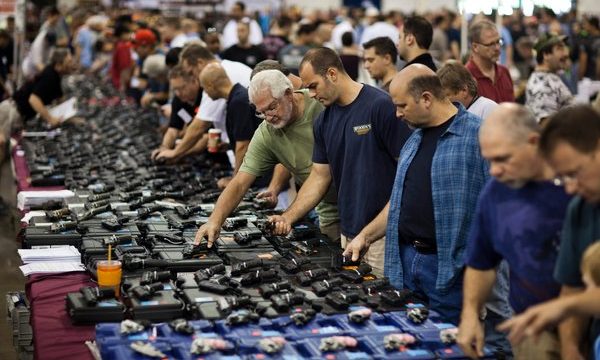Does Gun Ownership Make You More Likely to Die?

In ameta-analysis of 15 studies that aimed to measure the relationship between gun ownership and the risk of suicide or homicide published in the Annals of Internal Medicine, researchers found a link between gun ownership and higher levels of death. “Over all, University of California at San Francisco epidemiologist Andrew Anglemyer and his two co-authors found, people with access to guns were about three times as likely to kill themselves and about twice as likely to be killed as people without such access,” writes Reason’s Jacob Sullum.
According to The Daily Beast‘s Brandy Zadrozny, this analysis “has seemingly put an end to the debate” over gun ownership putting people at risk of death, “at least in terms of suicide and homicide.”
But is that really true?
The problem is that the studies analyzed find a correlation between gun ownership and higher rates of suicide and homicide, but saying that gun ownership puts a person at risk of those things is suggesting that guns cause higher rates of suicide/homicide.
Does someone decide to kill themselves because they own a gun? Or does an already suicidal person obtain a gun as a means to an end they’ve already decided on? If we were to eliminate guns from our society, would the number of suicides drop or would suicidal people find different ways of killing themselves?
I’m inclined to say that suicidal people intent on taking their own lives are likely to do so whether or not they have a gun available to do it, but what’s a certainty is that these studies don’t tell us anything one way or another.
“Whether the presence of a firearm among case patients is the result of environmental characteristics or living conditions is unclear,” the authors of the analysis write. They point, specifically, to the possibility that “some persons may purchase a firearm for protection because of neighborhood crime.” If that’s true, it’s the dangerous environment they lived in, not the presence of a gun, that contributed to their death.
More from Sullum, who points out that many of the deaths counted in the studies may not even involve firearms at all:
It is hard to know what is going on here without more details about the circumstances of each death. For example, in how many cases, if any, did an abusive husband disarm his wife and use the gun she bought for self-defense against her? Were the people who committed suicide determined enough that if a gun had not been available they would have killed themselves anyway? The studies not only do not answer such questions; they typically do not even distinguish between deaths by firearm and deaths by other means, a puzzling omission if the aim is to measure the risks posed by gun ownership.
At the heart of this issue is the question of whether or not owning a gun changes people’s behavior in a ways that make them more likely to be killed by themselves or someone else. These studies, and the analysis tying them together, doesn’t answer that question.




